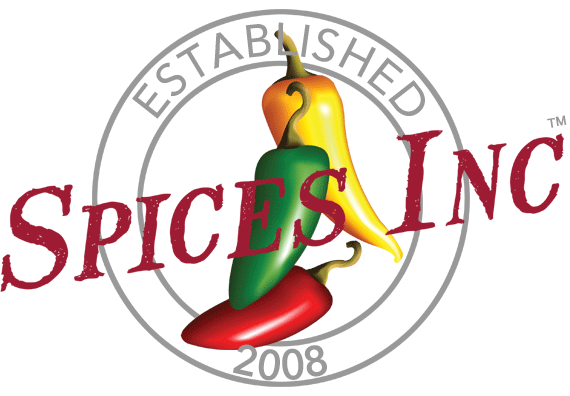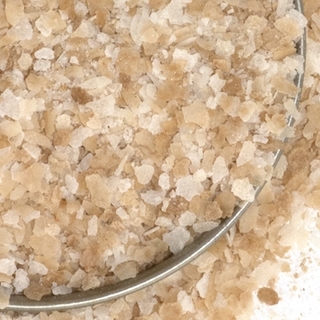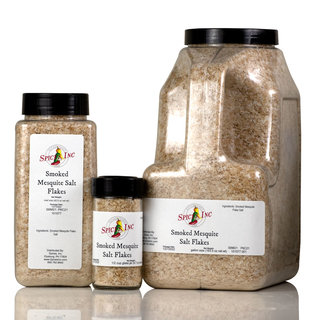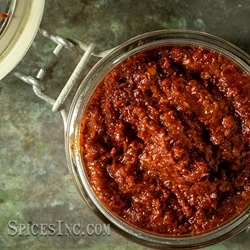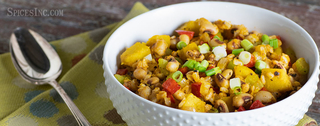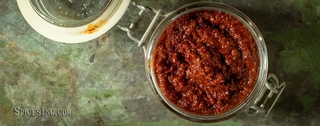Smoked Mesquite Salt Flakes
Smoked Mesquite Salt Flakes
Smoked Mesquite Flakes Salt is also called mesquite smoked salt, mesquite salt, mesquite smoked sea salt or bulk flake salt. One of our customers calls it “campfire in a jar”.
Smoked Mesquite Salt is made by pressing sea salt crystals into wide, flat flakes. It is then smoked over a relatively low-heat fire—68-86°F—fueled by bark-free mesquite wood. It can take up to 12 hours to smoke salt so that it retains the high quality flavor and an intensely pleasurable aroma our customers look for.
Businesses who frequently purchase Smoked Mesquite Flaked Salt are Mexican and BBQ restaurants; independent spice shops; olive oil shops; coffee shops; seasoning companies; and companies who manufacture salsa, sauces, and jams.
Please visit our salt page to view our full like of smoked, seasoned, and regular salts.
Flavor Profile
Smoked Mesquite Flaked Salt has a strong, smoky flavor with slightly sweet undertones.
How to Use
This salt adds depth to Hoppin' John, a low country mix of rice and beans that benefits from a little smoke. Use as the finishing touch on Oven-Roasted Beef Brisket to give it a touch of the outdoors. It will give extra lift to Mesquite Lime Fajitas. This versatile salt is also at home in Korean Gochujang Paste, which can then be used to make Korean Chicken Wings or Oi Muchim, a spicy Korean Cucumber Salad.
Use Smoked Mesquite Flake Salt in dry rubs, brisket, burgers, jerky, fish, pork chops, grilled and roasted chicken, rice dishes, vegetables, and stuffed peppers.
| Also Called | Mesquite smoked salt, mesquite salt, mesquite smoked sea salt or bulk flake salt |
| Ingredients | Mesquite-smoked flake salt |
| Flavor Profile | Smoky, salty, slightly sweet |
| Recommended Uses | Jerky, brisket, burgers, fajitas, stews, vegetables, condiments |
| Cuisine | Global |
| How To Store | Airtight container in a cool, dark place |
| Shelf Life | 1-2 Years |
| Country of Origin | USA |
Nutrition Facts
Serving Size1 tsp
Amount Per Serving
Calories0
% Daily Value*
Total Fat0g0%
Saturated Fat0g0%
Trans Fat0g
Polyunsaturated Fat0g
Monounsaturated Fat0g
Cholesterol0mg0%
Sodium2250mg98%
Total Carbohydrate0.0g0%
Dietary Fiber0.0g0%
Total Sugars0.0g
Added Sugars0g0%
Sugar Alcohol0.0g
Protein0.0g0%
Vitamin D0mcg0%
Calcium0mg0%
Iron0mg0%
Potassium0mg0%
*The % Daily Value (DV) tells you how much a nutrient in a serving of food contributes to a daily diet. 2,000 calories a day is used for general nutrition advice. These values were calculated and therefore are approximate. For more accuracy, testing is advised.
